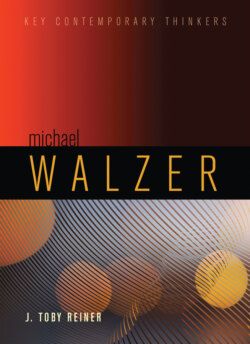Читать книгу Michael Walzer - J. Toby Reiner - Страница 10
Notes
Оглавление1 Rawls uses the Latin – sub specie aeternitatis – which he defines as incorporating “all social” and “all temporal” viewpoints (Rawls 1971: 587), which is a way of avoiding the particularity of perspective. 2 Interview with author, April 19, 2010. 3 While any account of so broad an approach is a simplification, the key assumptions of analytic philosophy are, roughly, as follows: “1 There is a reality independent of human knowledge of which we human beings are part. 2 Reason and method, particularly as exemplified in science, offer us the proper way to explore that reality and our relationship to it. 3 In this exploration traditional preconceptions – in particular, traditional evaluative preconceptions – should be suspended and the facts allowed to speak for themselves” (Pettit 2012: 5). 4 For versions of this criticism, see Warnke 1993, Bounds 1994, Roberts 1994, Bader 1995, Orlie 1999, Balfour 1999, Erskine 2007, Levy 2014. 5 This has been particularly true in recent years, when Walzer has spent much energy arguing with the rest of the left (Walzer 2002a, 2003, 2018). 6 The information in this section is based on a series of interviews I conducted with Walzer in 2010, 2015, 2017, 2018, and 2019. 7 Consider, for example, Nozick’s statement of his approach in Anarchy, State, and Utopia (Nozick 1974: x). 8 See Walzer’s interesting reflection on Julius Caesar and the question of assisted suicide as it relates to Brutus (Walzer 1975a). 9 Walzer had begun to engage with Geertz’s work even before joining the Institute. See Walzer 1967a, and my discussion in Chapters 3 and 7.
